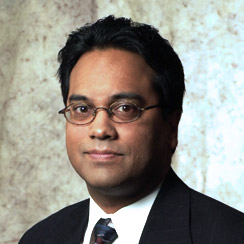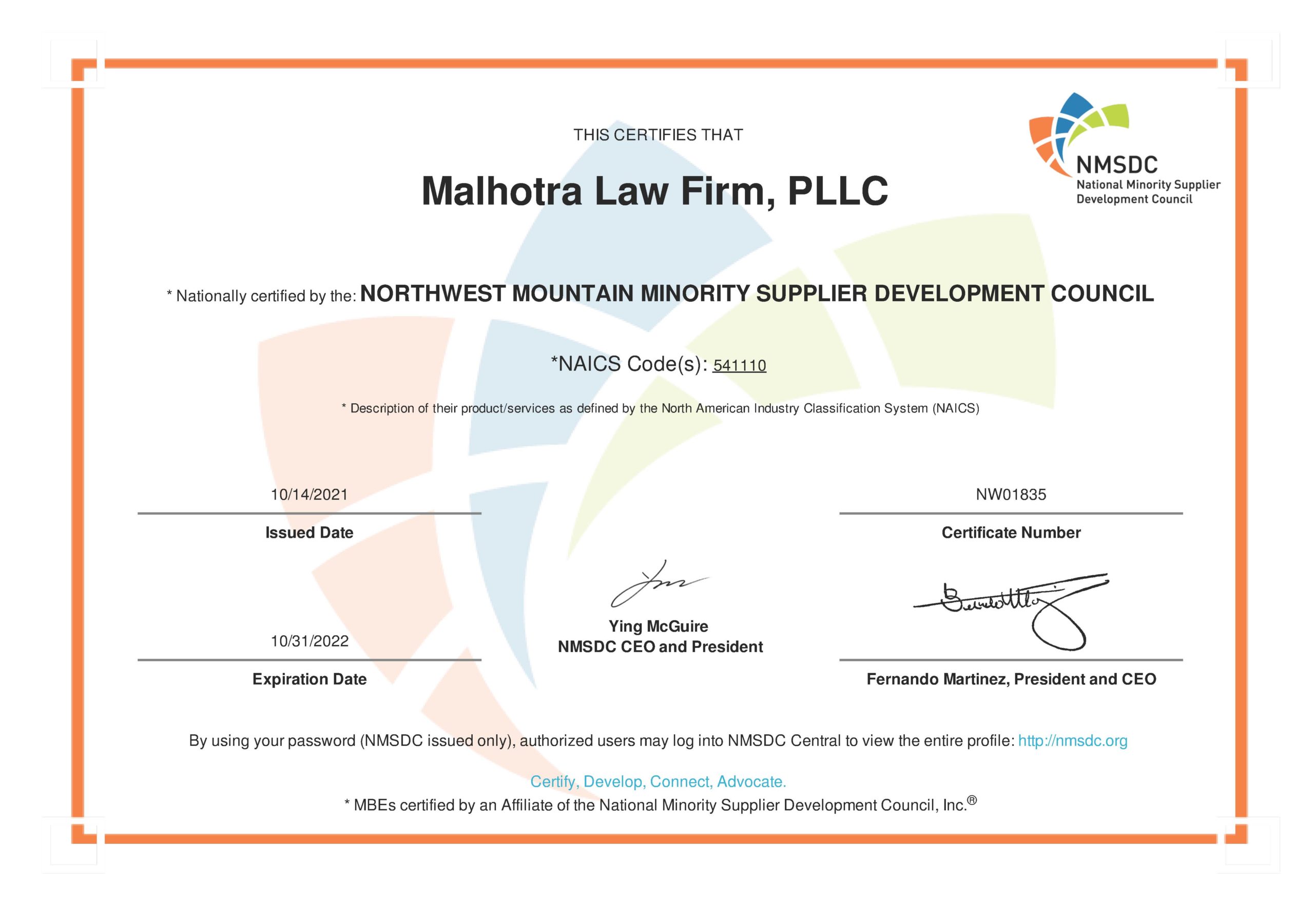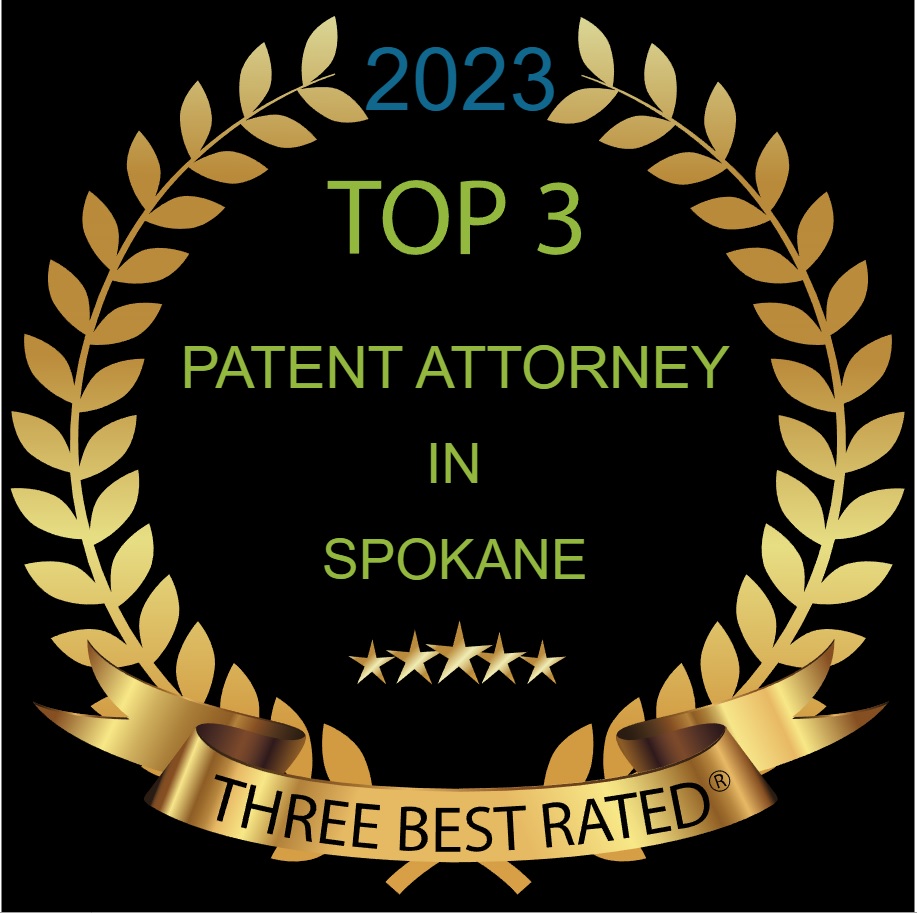Deepak Malhotra, JD, BSEE
Inventor and US Patent Attorney
Are you looking for a partner to help protect your ideas?
Let me introduce myself. I am Deepak Malhotra. I have over 20 years experience in patent preparation and prosecution, and have successfully prosecuted hundreds of patent applications to allowance. I have worked on large portfolios for many Fortune 500 companies. Importantly, I am dedicated to strong customer service. That’s not something you experience much in the legal world – but I believe you deserve timeliness as well as quality.
(By continuing, you agree that you have read, understood, and agree to this Disclaimer and Privacy Policy.)

Software Patent Lawyer, Electronics Patent Attorney
Deepak Malhotra, JD, BSEE has worked extensively with various technologies including software, RF communications, sensors, smart cards, ESD protection, tape drivers, servo systems, printers, static memory cells, dynamic memory cells, database, publishing systems, virtual reality, wafer production methods, wafer polishing, antenna diversity systems, RF collision arbitration systems, marketing systems, electron multipliers, microwave electronics, digital clock recovery loops, secure network authentication systems, user interfaces, and more. Malhotra Law Firm, PLLC was a minority certified patent law firm, certified by the Northwest Mountain Minority Supplier Development Council.


Malhotra Law Firm, PLLC has experience in:
- Protecting electrical, electronics, and mechanical inventions
- Assisting venture-capital funded start ups & Fortune 500 companies
- Helping foreign companies secure intellectual property protection in the U.S.
- Protecting software inventions with software patents
- International protection of inventions

Patents
In the language of the statute, any person who “invents or discovers any new and useful process, machine, manufacture, or composition of matter, or any new and useful improvements thereof, may obtain a patent,” subject to the conditions and requirements of the law. These classes of subject matter taken together include practically everything made by man and the processes for making them.

Trademarks
The primary function of a trademark is to indicate origin. However, trademarks also serve to guarantee the quality of the goods or services and, through advertising, serve to create and maintain demand. Rights in a trademark are acquired by use or applying for a federal trademark registration before use.

Business Method Patent Considerations
Attitudes towards business method patents have swung back and forth like a pendulum but recently the Supreme Court has refused to deem business methods patent ineligible. Business methods are generally eligible for patent protection if they pass a “Mayo/Alice” test. The first part of the test is to determine whether the claims are directed to an abstract idea, a law of nature or a natural phenomenon (i.e., a judicial exception). If the claims are directed to a judicial exception, the second part of the Mayo test is to determine whether the claim recites additional elements that amount to significantly more than the judicial exception. Many inventions that are thought to be business method inventions are really what I consider to be software inventions.

Software Patents
Like it or not, software patents are here to stay! Instead of hoping that they go away, your best defense against future potential infringement threats by others is to have an arsenal of your own. The U.S. Supreme Court, in a case known as Alice v. CLS, held that using a computer to automate a well known financial method is an unpatentable abstract idea. So what types of software inventions are patent-eligible?

How to Protect Phone Apps
Are you a smart phone app developer? If so, you will want to know what forms of intellectual property are available for protecting smart phone apps.

Provisional Patent Applications
The United States has a form of patent application called a Provisional Patent Application. Some people feel that these are an easy and inexpensive way to obtain a filing date and some patent rights, but they are usually unaware of the risks and downside.

Important Changes to U.S. Patent Law: America Invents Act (AIA)
The United States switched from a First-to-Invent system to a First-to-File system. That makes it important to file patent applications sooner rather than later.
Conducting A Patent Novelty Search
A thorough patent search is an enormous undertaking. However, you can start with a novelty search that covers the most likely languages and places.
The History of Software Patents Blog
How to Patent a Product (from a Patent Attorney’s Perspective)
Patenting a product is one of the most important steps you can take to protect your intellectual property and build long-term value around your invention. As a patent attorney, I’ve worked with everyone from garage inventors to established startups, and I’ve seen how getting a patent can make or break a business. I’ve also seen…
Latest News
USDOJ: Contributory Infringement Requires Conscious and Culpable Acts
The Supreme Court is being asked to resolve a high-stakes battle over when Internet Service Providers (ISPs) can be held liable for their users’ copyright infringement. Two petitions — Cox Communications, Inc. v. Sony Music Entertainment (No. 24-171) and Sony Music Entertainment v. Cox Communications, Inc. (No. 24-181) — stem from a Fourth Circuit decision involving a $1 billion jury verdict against Cox for music piracy on its network. In November 2024, the Court invited the Solicitor General (SG) to weigh in. In late May 2025, SG John Sauer filed the government's brief, recommending that the Supreme Court grant Cox’s petition to clarify—and ultimately narrow—the standard for contributory infringement.
- Read the SG Brief.
For this post, I take a step back and talk through some of the legal doctrines at issue — contributory & vicarious liability — in the context of ISP copyright infringement and then delve into how they might apply in Cox.
Background: The litigation began when a consortium of record companies and music publishers (including Sony Music) sued Cox Communications for copyright infringement based upon actions by Cox’s internet subscribers.
Federal Circuit Decisions – 2024 Stats and Datapack
By Jason Rantanen
It’s time for the annual Federal Circuit statistics update! As I’ve done for the past few years, below I provide some statistics on what the Federal Circuit has been doing over the past year. These charts draw on the Federal Circuit Dataset Project, an open-access dataset that I maintain containing information on all Federal Circuit decisions and docketed appeals. The court’s decisions are collected automatically from its RSS feed, and my research team uses a combination of Python-based algorithmic processing and manual review to code information about each document.
One of my goals with this dataset is to make it publicly accessible so that anyone can use it in their own research. A complete copy of this year’s release is archived at https://dataverse.harvard.edu/dataverse/CAFC_Dataset_Project, and the codebook is also available there. If you’re a researcher interested in using the dataset, feel free to reach out—I’m happy to help you work with the data or answer questions about it.
On to the data!
Figure 1 shows the number of Federal Circuit opinions and Rule 36 summary affirmances by origin since 2010. These represent individual documents (i.e., a single opinion or Rule 36) rather than docket numbers (which is how the Federal Circuit reports its own metrics).
The Ethics of When Lawyers Make Mistakes
by David Hricik, Mercer Law School.
I recently wrote a paper on this topic and gave a CLE and thought it would be useful to pass it along. It is here.
It goes through in a step-by-step way the way to approach fessing up to a mistake, as well as analyzing the different approaches that jurisdictions take to the issue. For example, some view the duty as arising from the need to keep a client reasonably informed, while others view it as part of a conflict-of-interest analysis. That matters because breach of the duty depends on which source applies: if it’s to keep the client reasonably informed, it’s basically triggered by knowing the client has a malpractice claim, but if it’s a fiduciary duty that is the source, then it’s triggered by the lawyer’s interest conflicting with the client’s.
Anyhow, it also addressed the critical issue of talking to your carrier and addresses a couple of related cases where lawyers’ duties were triggered by other sources.
While one of only three Electrical Engineer attorneys at his previous firm, the firm was ranked #2 in the U.S. for quality of Electrical Patents by PatentRatings, LLC. Deepak Malhotra has developed relationships with litigators and has assisted clients with aggressive enforcement of intellectual property. Software patents, business method patents, electrical patents, and mechanical patents are his specialties.
Deepak Malhotra Is Not Just A Patent Attorney,
He Is An Inventor Too, With Two U.S. Patents In His Name.



